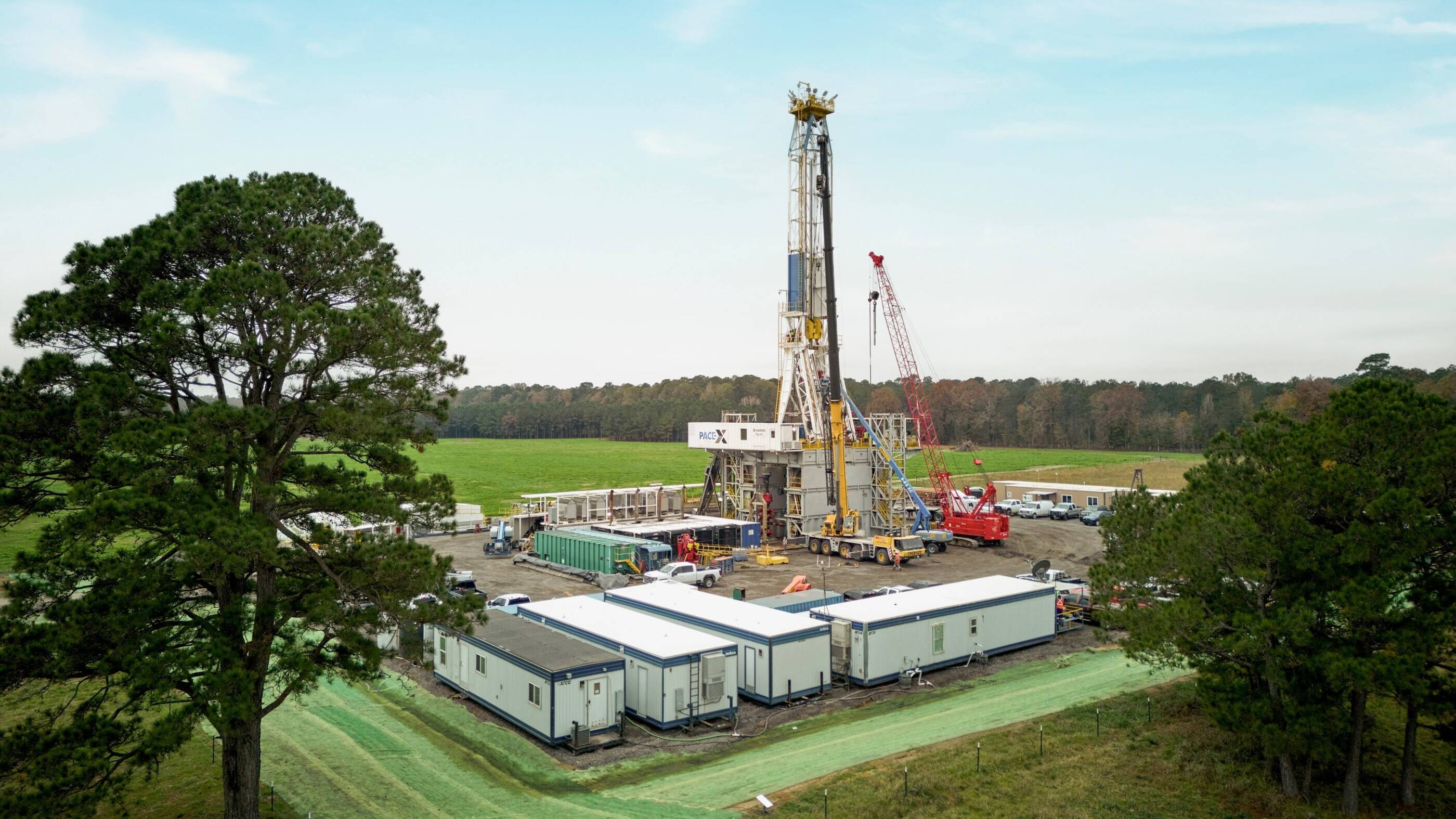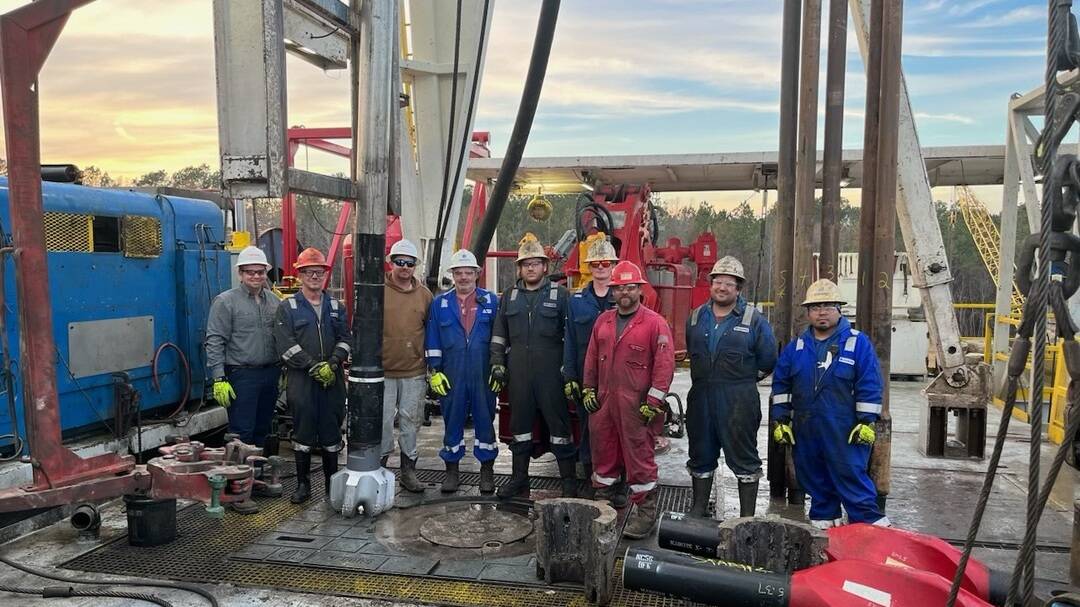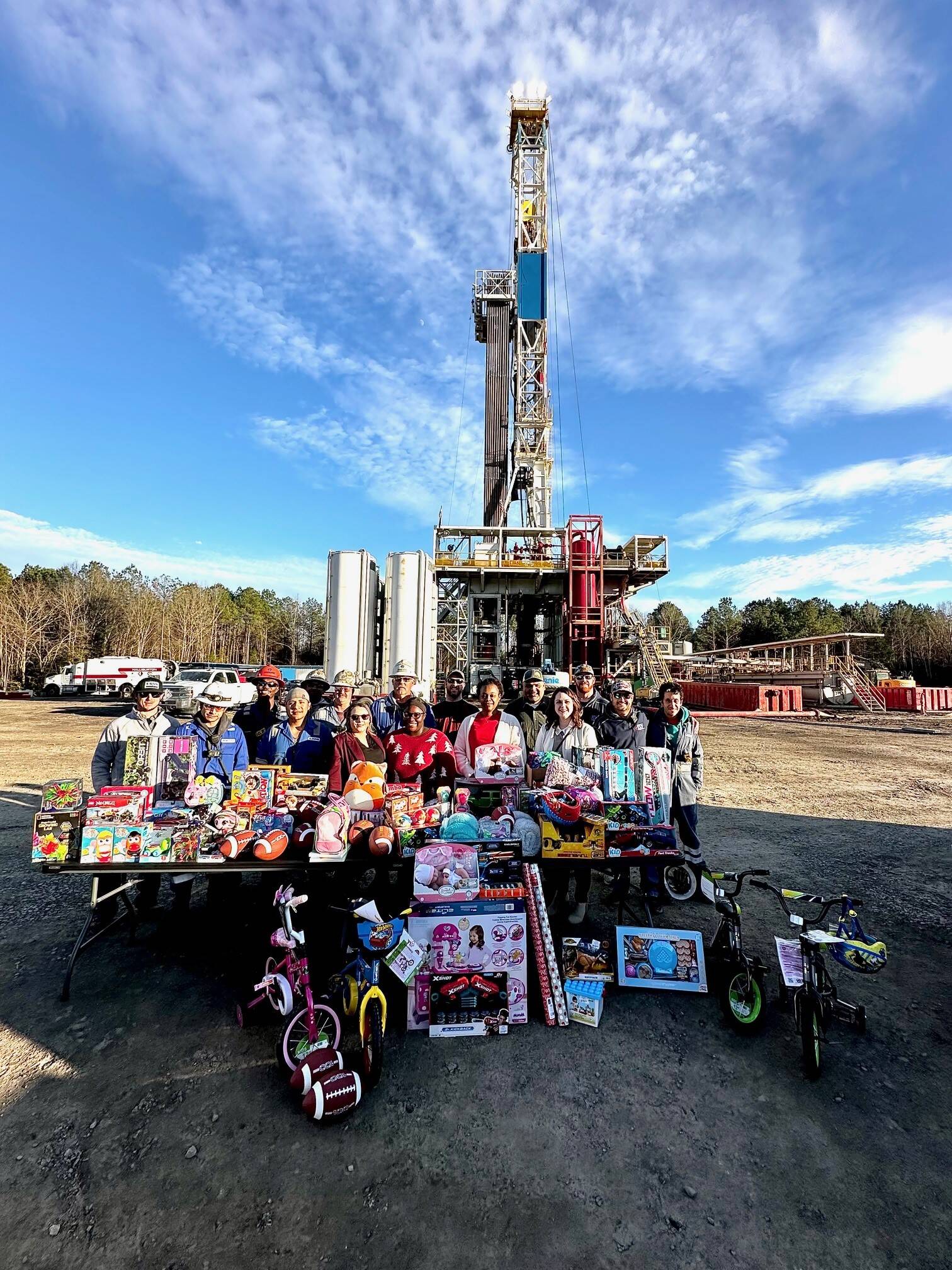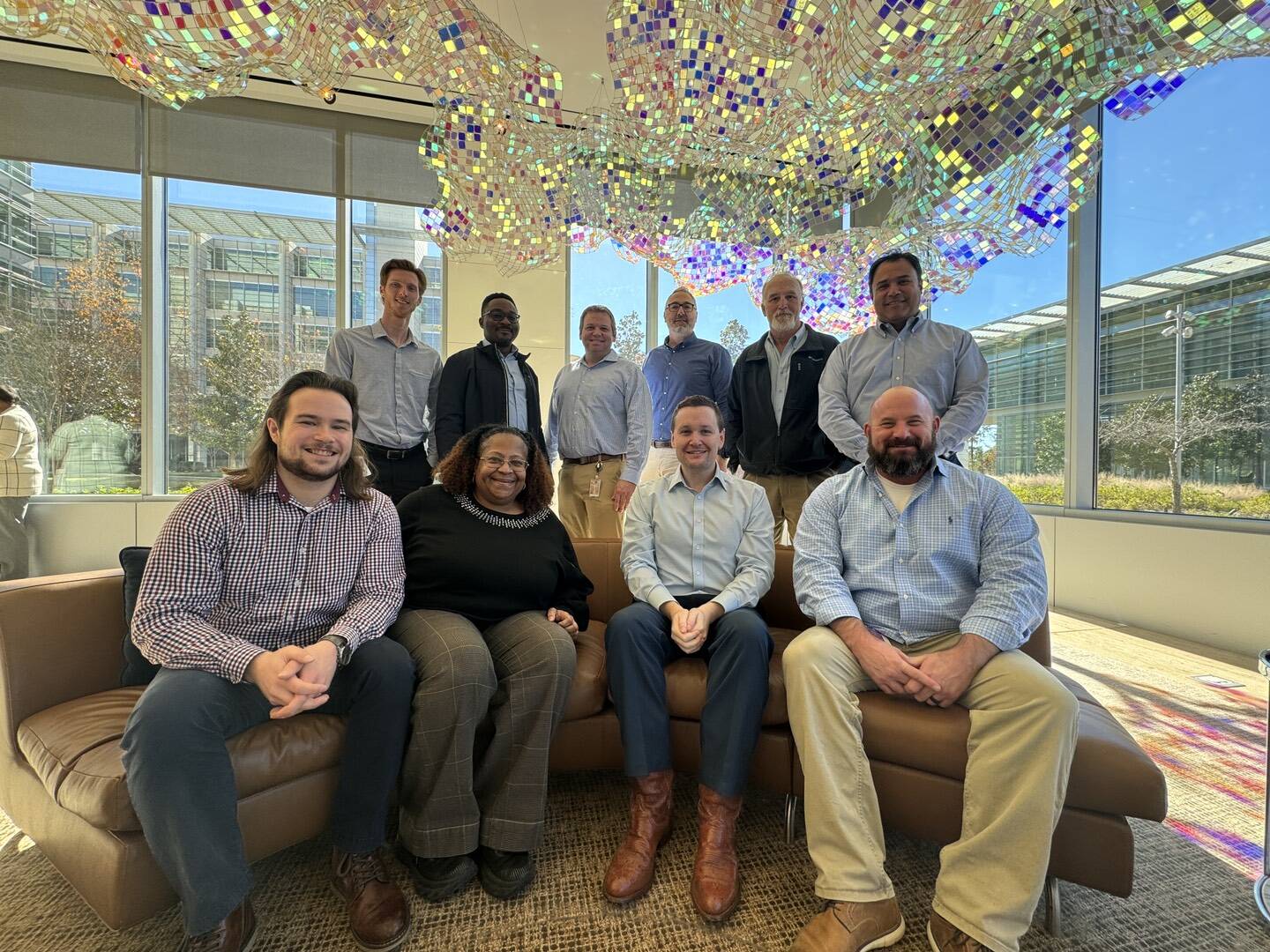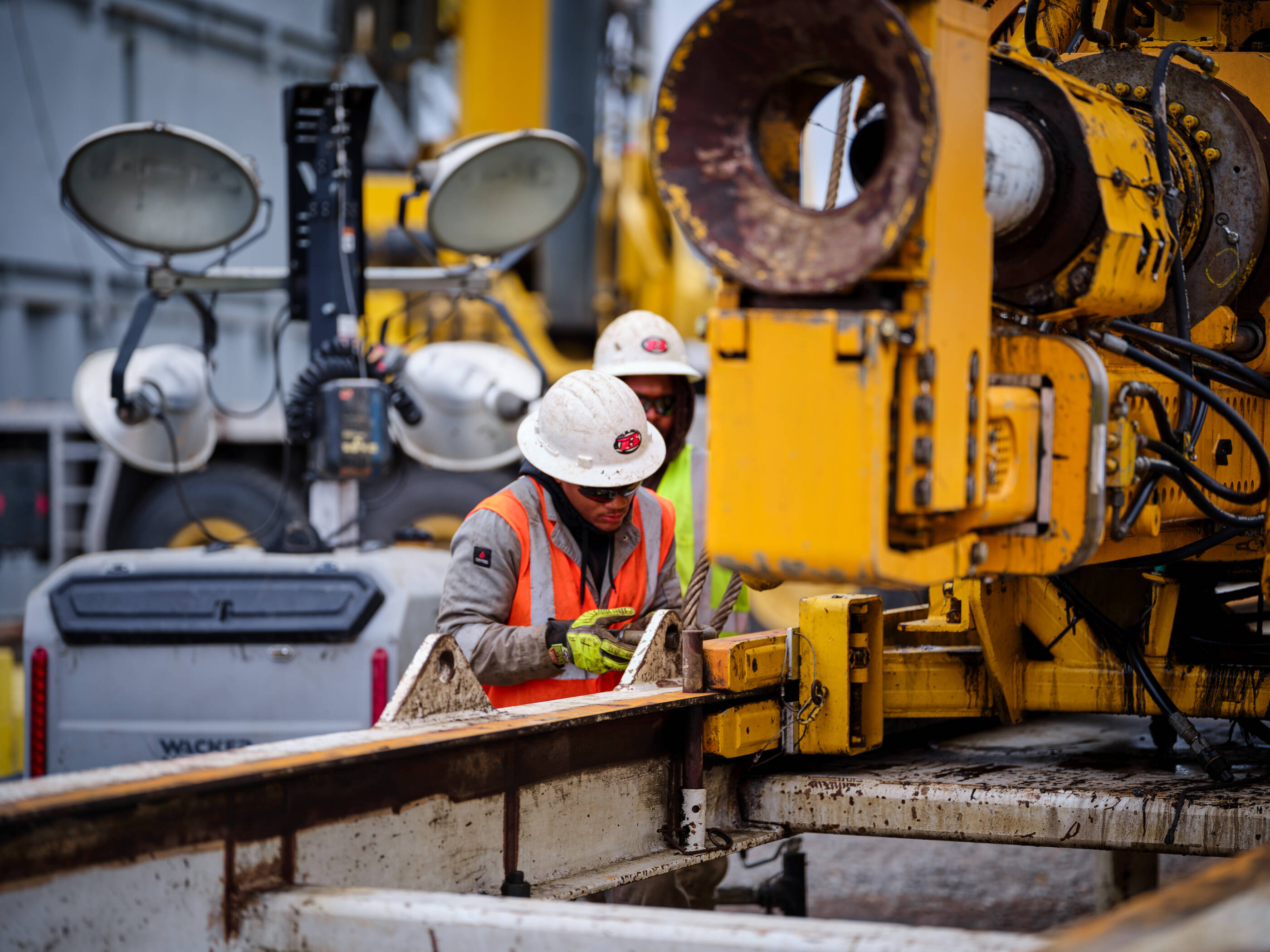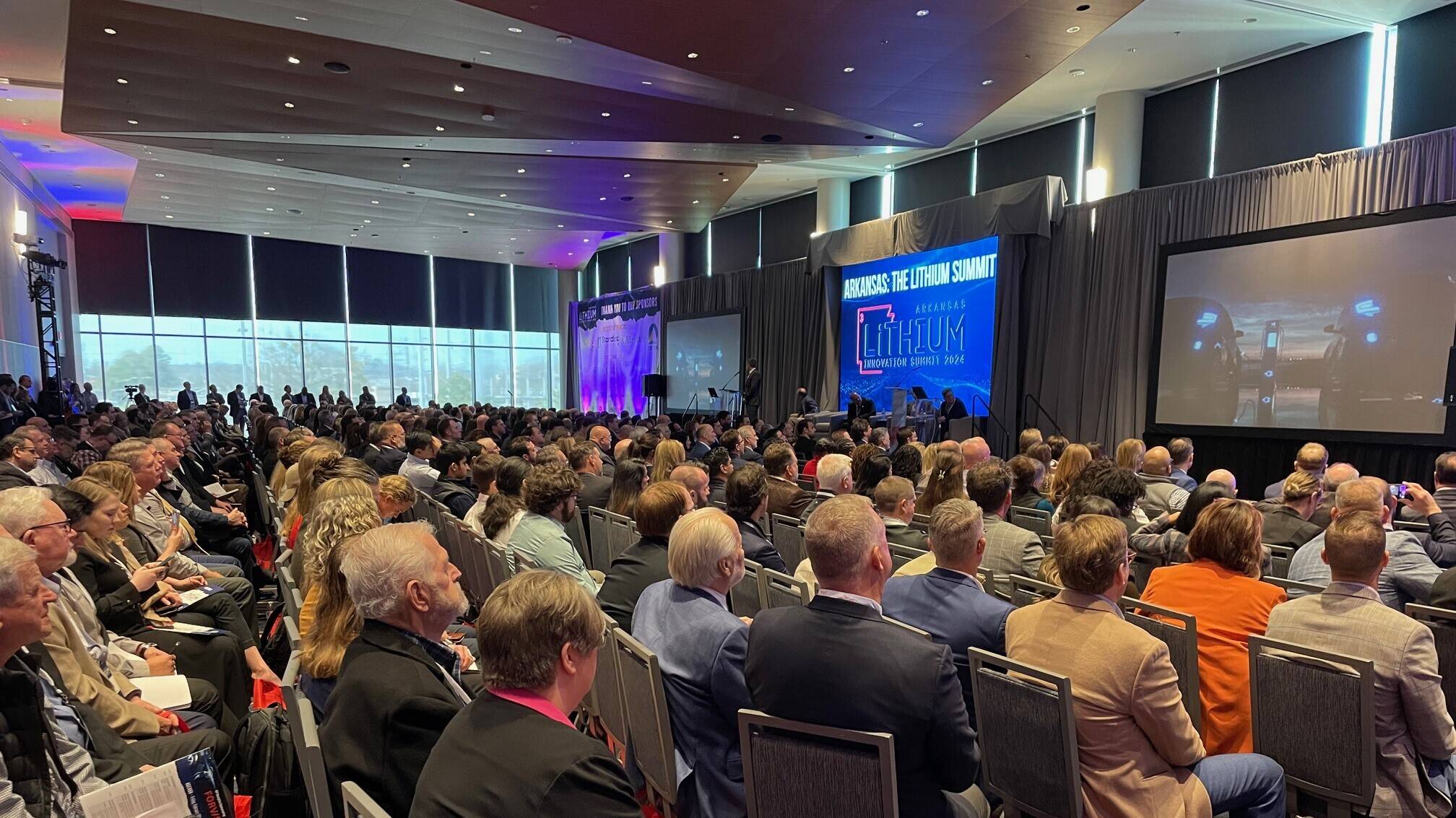selected item

Our first lithium well – but “not our first rodeo”
Key takeaways:
- Work's underway in Arkansas on our plan to produce lithium for electric vehicles
- Our lithium wells are leveraging technologies ExxonMobil’s proven over decades
Dylan Vint got married in December to his high school sweetheart, Brooke. But the young engineer also had another milestone to celebrate last month: the success of ExxonMobil’s first lithium well.
Dylan’s the lead drilling engineer for our lithium project in Arkansas. It’s an early step in our landmark plan to become a significant producer of the metal – a key material for electric vehicle batteries – by tapping lithium-rich brines thousands of feet underground.
It’s a relatively new way to produce lithium, with less environmental impact than current methods like hard-rock mining. Some have called it a potential game-changer for the lithium industry.
But as Dylan notes, the drilling and well construction techniques we’re using in our lithium project are very similar to ones we use to extract oil and natural gas – a process we’ve refined and improved over decades.
“This may be our first lithium well, but it’s not our first rodeo,” he said. “We're using the same tactics, the same tools, the same technologies. We’re just going after a different resource.”
And that’s an advantage. Because we’re experts in operating wells safely and efficiently. Last year alone, we drilled 400+ wells around the world – more than one a day on average!
A successful start
This advantage is on display in Arkansas, where work was safely completed on our first lithium well, with more already underway.
These “appraisal wells” are gathering information about underground reservoirs, and sampling the brine from which lithium can be extracted.
We all think it’s exciting to be applying our drilling and wells expertise to delivering a new resource, one that will aid in the energy transition.
All these wells are designed and executed by our Global Low Carbon Solutions & Well Management wells team. Collectively, these men and women have more than 100 years’ experience in both onshore and offshore operations. Dylan said their wisdom and mentorship has been essential to the safe and successful execution of our lithium program.
“We all think it’s exciting to be applying our drilling and wells expertise to delivering a new resource, one that will aid in the energy transition,” Dylan said.
He said the team also appreciates how welcoming the local Arkansas community has been (“at Thanksgiving, they brought us pies!”). The warmth’s been reciprocal – ExxonMobil employees and contractors organized a holiday toy drive that collected more than 150 toys and gift cards that we donated to the Magnolia Housing Authority.
An unexpected career twist
A Houston native, Dylan said his first exposure to the industry was an internship he landed at XTO after attending a career fair at Baylor University, where he earned his degree in mechanical engineering. “I had no idea I wanted to work in oil and gas, but they sent me to the Permian, and I fell in love with it,” he said.
But he’s also still a bit amazed at the shift into a new resource: “If someone had told me that someday I’d be drilling for lithium, I would have laughed. It blows my mind.”
Click here to learn more about ExxonMobil’s lithium plan, and click here to learn more about our lithium solutions for businesses.
Explore more

Got 2 minutes? See how we’re turning brine into battery-grade lithium
2 min read
•
Expert spotlight: Stephanie Lollar - a “landman” pivots to lithium
3 min read
•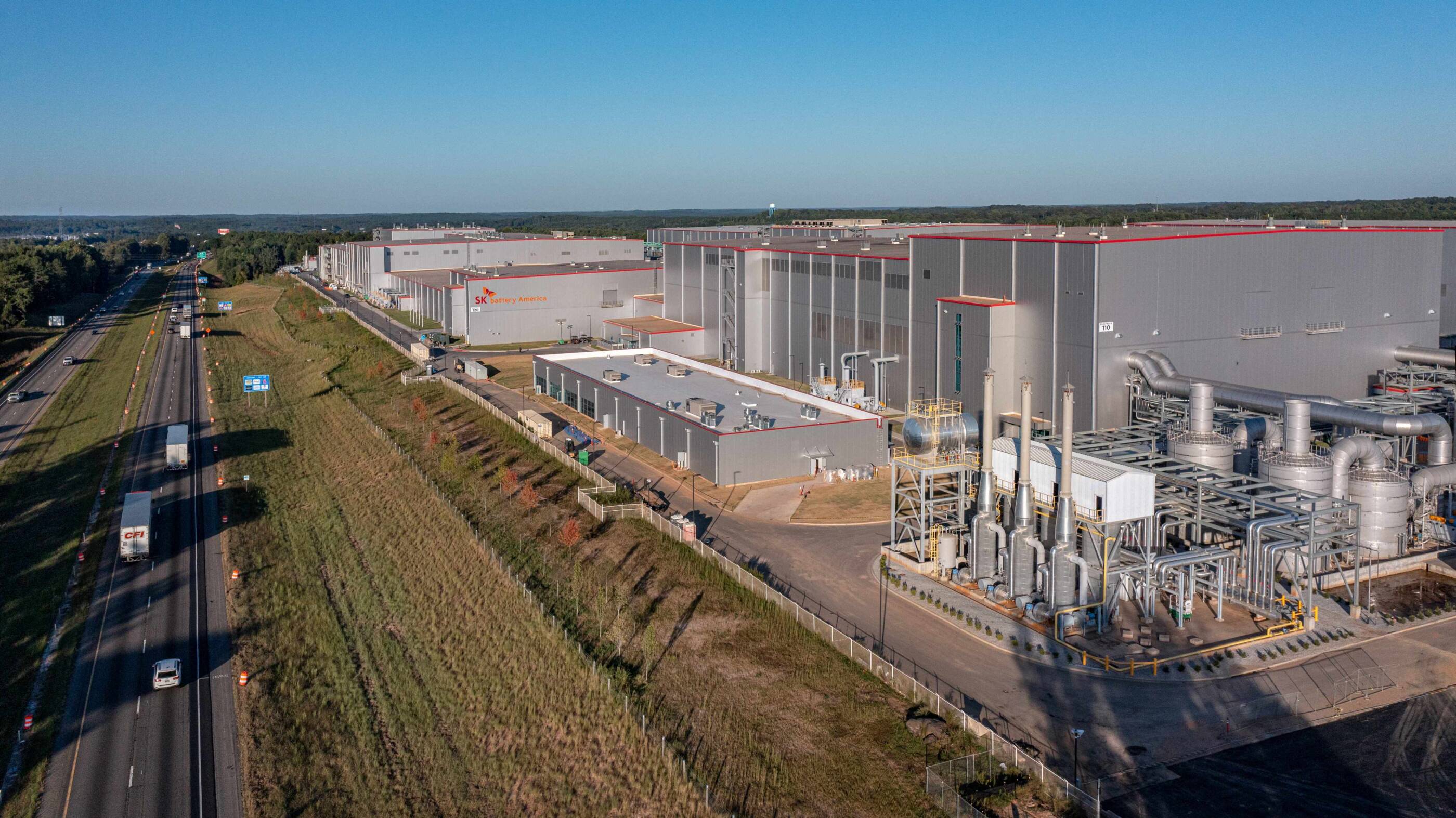
ExxonMobil and EV battery maker SK On sign MOU regarding U.S. produced Mobil™ Lithium
2 min read
•
Charging into the lithium business
3 min read
•
Rock on, Jen! How a geoscientist looks for lithium
3 min read
•
